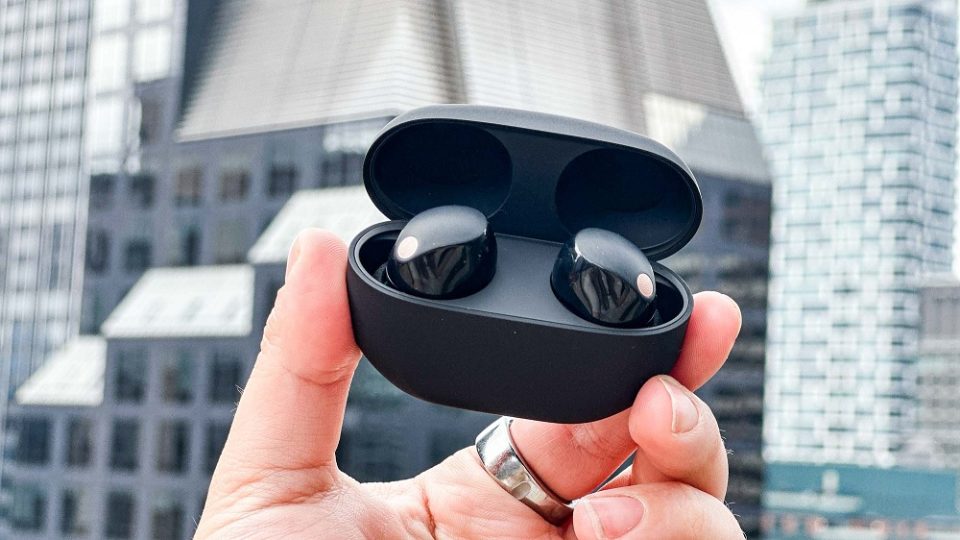Earbuds have become an essential part of daily life, whether for listening to music, taking calls, or watching videos. However, with increasing concerns about hearing health, many people wonder whether wired or wireless earbuds are safer for the ears. This article explores this question by examining scientific studies, expert opinions, and real-world usage patterns.
Understanding the Basics of Ear Safety
Hearing loss is primarily caused by prolonged exposure to loud sounds, not by the type of earbuds used. According to the World Health Organization (WHO), exposure to sounds above 85 decibels (dB) for extended periods can lead to noise-induced hearing loss (NIHL). This applies to both wired and 119 wireless earbuds for gaming thespark Shop.
The key factors that determine ear safety include:
- Volume levels – Higher volumes pose greater risks.
- Duration of use – Longer exposure to loud sounds increases the likelihood of hearing damage.
- Fit and design – Poorly fitting earbuds may lead to excessive volume use to compensate for external noise.
- Wireless radiation exposure – Some concerns exist about the impact of Bluetooth signals on human health.
Sound Quality and Volume Control
One of the primary concerns regarding hearing safety is whether the type of earbuds affects how loud users set their volume. Some users report that wireless earbuds have better noise isolation, which may help keep volumes lower. On the other hand, some wired models may produce clearer sound, reducing the temptation to increase volume levels.
A study published in The Journal of the Acoustical Society of America found that users of earbuds, regardless of wired or wireless design, often exceed safe listening limits. The study concluded that the real issue is user behavior, not the type of connection.
Wired Earbuds
- Typically provide a direct audio signal without compression, offering better sound clarity.
- Users may not need to raise volume levels as much due to minimal latency and lossless transmission.
- Dependence on device output power means volume control may be limited.
Wireless Earbuds
- Many feature active noise cancellation (ANC), which helps reduce background noise, potentially encouraging users to keep volumes lower.
- Some wireless models compress audio, which might reduce clarity and cause users to increase volume.
- Wireless technology allows independent volume control, meaning users might set it higher than needed.
Case Study: Smartphone Users and Listening Habits
A 2021 study published in Hearing Research monitored listening habits among smartphone users. It found that those using wireless earbuds with ANC listened at an average of 70-80 dB, while those using wired earbuds averaged slightly higher at 80-90 dB. The reason? Users of wired earbuds tended to raise the volume in noisy environments due to a lack of external noise reduction.
Bluetooth Radiation: A Health Concern?
Wireless earbuds use Bluetooth technology, which emits low-power radiofrequency (RF) radiation. Some concerns have been raised about the long-term impact of RF exposure near the head.
However, according to the Federal Communications Commission (FCC) and World Health Organization (WHO), Bluetooth devices emit non-ionizing radiation, which is generally considered safe. Studies, including one from the National Cancer Institute, found no conclusive evidence linking Bluetooth exposure to brain or ear damage.
That said, those who are still concerned may prefer wired earbuds to minimize exposure to wireless signals.
Comfort and Fit: Impact on Hearing Safety
Comfort and fit also play a significant role in ear health. Ill-fitting earbuds allow external noise to seep in, leading users to increase volume to unsafe levels.
- Wired Earbuds: Tend to be more basic in design, often relying on standard ear tips. If they don’t seal properly, users may turn up the volume to compensate.
- Wireless Earbuds: Often come with customizable ear tips and noise isolation features, reducing the need for excessive volume.
A study from The American Journal of Audiology emphasized that noise-isolating earbuds, whether wired or wireless, help users keep the volume at safer levels compared to non-isolating designs.
Battery and Safety Considerations
Wireless earbuds rely on lithium-ion batteries, which can degrade over time. Overheated or faulty batteries may pose a minor safety risk. There have been rare cases of earbuds catching fire or exploding, though these incidents are typically due to manufacturing defects or misuse. Wired earbuds, on the other hand, do not pose such risks since they do not require batteries.
Final Verdict: Which is Safer?
When it comes to ear health, both wired and wireless earbuds, bluetooth 5.0 8d stereo sound can be safe if used responsibly. The real risk is excessive volume and prolonged listening, rather than the type of connection.
Wired Earbuds May Be Safer If:
- You want to avoid Bluetooth radiation exposure.
- You prefer consistent, high-quality audio without compression.
- You do not need active noise cancellation to reduce external noise.
Wireless Earbuds May Be Safer If:
- You use ANC to keep volume levels lower in noisy environments.
- You prefer a more secure fit that reduces background noise.
- You are concerned about the potential for accidental wire tugs, which can cause sudden loud noises.
How to Protect Your Ears Regardless of Earbud Type
- Follow the 60/60 rule: Listen at 60% volume for no more than 60 minutes at a time.
- Choose noise-isolating designs: This helps keep volume lower.
- Use volume-limiting features: Some devices have built-in volume caps.
- Take listening breaks: Give your ears time to recover after extended use.
Conclusion
Both wired and wireless earbuds have their own advantages and potential drawbacks when it comes to ear safety. The biggest factor in hearing protection is how they are used rather than their design. Keeping the volume at safe levels and limiting listening time will go a long way in preventing hearing damage, regardless of whether you choose wired or wireless earbuds.

